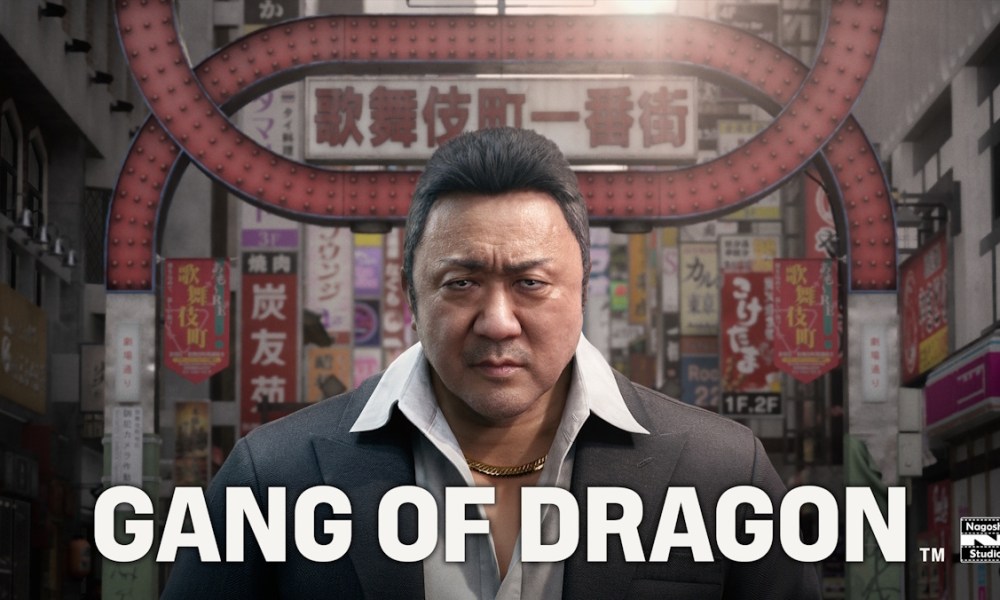Asia
Regulating Online Gambling is More Important than Ever in Pakistan
The internet has become part of our lives in the 1990s, and since then, it has never stopped spreading.
Today, a never-before seen crowd of people are connected, and many of them are so through their pocket-sized computers the rest of the world knows as smartphones. Pakistan is quickly catching up with the rest of the world when it comes to technology – according to a report published by the Pakistan Advertisers’ Society, the country has around 28 million active mobile social users out of the over 35 million internet users in the country. This number is large enough to make issues like online gambling one that has to be addressed in the country.
Gambling in Pakistan is regulated by the Gambling Prevention Act of 1977 – a piece of legislation that’s 40 years old. As a law enacted long before the internet has become available to the public, it has no provisions that refer to any form of gambling online. This means that anyone with an internet connection can freely play at wildjackcasino.com with no control and restriction on the part of the government. This wouldn’t be such a big problem since the Wild Jack is a gaming destination with a considerable past and experience in handling gambling-related services and issues. Besides, the Wild Jack and its sister casinos are regulated by the licensing authorities of Malta, an EU country with strict customer protection, security, and privacy policies. Yet it also gives the opportunity to operators without a strong legal background to promote and offer their services to the Pakistani population – often with the sole goal of scamming them out of their money. A strict and strong regulation of the online gambling market is needed to weed out eventual illegal operators from the market.
The question of money
With no online gambling regulation or licensing framework, online gambling operators can freely offer their services to locals and generate profits – and not pay a dime in taxes to the Pakistani government. Just like in many other countries without any online gambling regulation, the population is making use of the variety of services available and spending money there – yet the government doesn’t get its fair share. Which is a situation that’s unlucky, to say the least. Budgetary considerations have led many US states to consider regulating online gambling within their borders – even some that have a strong anti-online gambling movement. Here, regulating the industry would mean at least bringing it to light – and perhaps some well-deserved input to the state’s budget. Besides, a regulated online gambling environment would help the government to form a clearer picture of gambling problems and underage gambling, issues that are constantly monitored in all regulated markets of the world.

Asia
Understanding Japan’s Obsession with Pachinko Parlours

Pachinko is one of Japan’s favourite pastimes. Its popularity has grown exponentially since its emergence as a children’s game in the 1920s. The game soon gained popularity among adults and became a total phenomenon as the 20th century progressed.
The game plays a significant role in Japan’s economy. Extraordinarily, it now contributes around 4% to Japan’s GDP! In the late 1990s it was even higher, reaching a peak of 5.6% in 1999. This makes the Pachinko industry twice as profitable as the automobile export industry. It also employs more people than the entire automobile industry. Pachinko now produces more revenue than the gambling capitals of Macau, Singapore and Las Vegas combined. Profits from the industry amount to around 30 trillion yen each year. And when we say “industry” this doesn’t necessarily mean Japan’s casinos, but there is definitely an element of gambling involved as we’ll explain in more detail later.
Japanese cities are now dotted with Pachinko halls. There are different types to attract different kinds of clientele, as Pachinko’s popularity in Japan is consistent across all demographics. Initially more popular among men, more and more women have become enthusiastic players since the 1980s.
The game is often described in the West as “vertical pinball.” While this isn’t entirely accurate, the game does share some similarities with pinball, as well as with more standard slot machines. The game involves small steel balls which are shot into a vertical playing range and run around a track. Players use a lever on the side of the machine to play. The objective is to land as many of the balls as possible into small cups at the bottom of the range. While the machines used to be much more mechanical, they are now increasingly electronic.
Players also try to match symbols, as with a standard slot machine. When they match three of the same symbols, many small steel balls exit the machine into a plastic box, which can then be exchanged for tokens. When a player wins, the machine’s lights flash and the song changes.
While pachinko is essentially a game of chance, some “pachinko pros” identify patterns to exploit the machines more effectively. For example, newer machines are programmed to give out more wins to encourage players to return. Some also believe that there are better times of day to play particular machines. It’s not uncommon for players to win significant sums of money, in some cases as much as 200,000 yen in a day. However, a player can also lose up to 10,000 yet in as little as forty minutes of playing time without a win.
Other legal gambling industries in Japan, such as horse, bicycle and boat racing, are operated by the government. Pachinko, however, operates through a legal loophole and is “government tolerated.” Rather than playing directly for money, players play for small metal balls which can be exchanged for tokens. These tokens can then be exchanged for a range of prizes, including cash, at a different location. These locations are usually in different buildings that are very near the pachinko parlour.
Pachinko machines also usually take prepaid cards rather than cash. Despite the enormous popularity of pachinko, its nuanced legal status makes it a somewhat marginalised industry. It is not always seen as a “respectable” line of work among the Japanese middle classes and many of the parlours are operated by Korean immigrants.
Pachinko is often seen as a stress-relief activity for Japan’s salarymen or women with many responsibilities in the home. The style of parlour varies depending on the kind of players it is intended for. However, there are issues around addiction and compulsive gambling. In 1999, 29% of pachinko players reported that they felt they had an addiction to the game. There are other social problems associated with the game, such as neglect of the children of compulsive players.
The Japanese authorities have worked hard to address these issues since the 1990s. Some pachinko parlours now also offer small prizes and minimal expenditure from players in order to move the focus off the gambling aspect and onto the game itself. Advertisements for responsible playing are also visible throughout most parlours and in society more broadly.
Pachinko’s popularity may also be beginning to decline. There are almost a third fewer parlours than there were in 2005, and many that were already struggling have been forced to close due to the Covid-19 pandemic. Younger players also often prefer video games to pachinko.
Still, pachinko remains a cultural phenomenon and an intrinsic part of Japanese life. It can be fascinating to witness such a culturally specific pastime in action. Some pachinko parlours mainly cater to serious players. However, there are plenty of others where the staff will be delighted to introduce you to the game.
Asia
Slotegrator’s overview of gambling in Uzbekistan

Online casino and sportsbook provider Slotegrator is one of the leading aggregators in the Eastern European and CIS gambling markets — and rightfully so: the company keeps a close eye on the evolution of iGaming in each country and provides you all the latest information. Slotegrator’s new article shines the spotlight on the gambling landscape of Uzbekistan.
In November 2019, the government of Uzbekistan published a decree on sports activities that also revealed officials’ intention to legalize the sports betting sector of the gambling industry, which was banned in 1991 (with one exception — state lotteries).
The potential legalization of sportsbook businesses looked like a serious and meaningful step forward on the government’s part, and was supposed to open some new doors to the highly promising market for sponsors and investors. It was also seen as a natural stimulus to help Uzbekistan’s sports industry — particularly football — make a giant leap forward.
In addition to the initiative to develop sports betting, there is a project to create a special gambling zone in the city of Muynak. The logic behind the idea is to popularize Uzbekistan as a tourism destination and attract more international investments into the country’s economy. Meanwhile, the planned construction of an entertainment area should include a sports track as well as a shopping mall.
The year 2020 has been set to carry out all the necessary campaigns to lay the groundwork for taking the next steps and eliminating any possible legal contradictions and loopholes.
Read Slotegrator’s new article on Uzbekistan’s gambling initiatives to find out more about the current status of the project.
Asia
Pave the way to gambling success in India by launching an online casino business powered by Slotegrator

While businesses everywhere are barely keeping their heads above water in a turbulent global economy, India offers a safe haven. When it comes to iGaming, the Indian horizon looks crystal clear and cloudless. This is one of many reasons why online casino operators are setting a course for India, which offers a more promising financial and legislative climate than many other jurisdictions.
India has been seen as a land of promise and opportunity throughout human history, with countless business endeavors made to the country in hopes of tapping into its riches — and the iGaming industry is no different. Online casino and sportsbook software supplier Slotegrator made its own trip to the Indian market to ensure it offers the online gambling community firm — and profitable — ground to stand on. The evidence that the game is worth the candle? India has a population of over 1.3 billion, constantly increasing access to mobile technology, and a gambling industry already estimated to be worth $60 billion USD per year. Need we say more?
Slotegrator has carried out thorough research on India’s iGaming prospects, the result of which is another vivid illustration of the current opportunities: India is now home to nearly 700 million smartphone users, with over 127 million new users coming online since 2019. With that in mind, iGaming operators may be asking themselves what steps they should take to launch an online casino project. They can find the answer in “A guide to starting an online casino in India” by Slotegrator.
The article leaves no stone unturned, shining a spotlight on all the crucial aspects of the serpentine process of opening an online gambling project. By getting in-depth information and studying up on necessary tricks under Slotegrator’s wing, operators can perfectly gear themselves up for iGaming success. With a focus on an in-depth market overview, Slotegrator leads readers through the journey to establishing a flourishing iGaming business, pinpointing all the market’s intricacies along the way.
In India, like in any other jurisdiction, operators should be well-educated with respect to gambling laws, which vary from state to state. While the regulatory framework in the country is complicated, ignorance will not be seen as an excuse, so operators should take careful note of online gambling regulations in order to find firm legal footing on Indian soil.
To run a successful iGaming business, operators have to lay the groundwork for the future of their projects, and Slotegrator’s guide to starting an online casino in India is definitely a helping hand for ambitious business owners with their eye on the booming market.
-
Latest News3 months ago
Announcement: 25th September 2025
-
Latest News3 months ago
AI-Powered Gamification Arrives on Vegangster Platform via Smartico
-
Latest News1 month ago
JioBLAST Launches All Stars vs India powered by Campa Energy: A New Era of Creator-Driven Esports Entertainment
-
Latest News3 months ago
The Countdown is On: Less Than 3 Months to Go Until The Games of The Future 2025 Kicks Off in Abu Dhabi
-
eSports1 month ago
CS:GO Betting Gains Momentum in the iGaming Sector
-

 Latest News4 days ago
Latest News4 days agoSCCG Announces Strategic Partnership with Yellow Elephant Studios to Expand Multi-Channel Gaming Content Worldwide
-
Latest News3 months ago
Adidas Arena Set to Welcome the 2026 Six Invitational
-
Latest News3 months ago
LiveScore Group announces transformational partnership with X and xAI to drive the future of integrated sports media and betting




















You must be logged in to post a comment Login